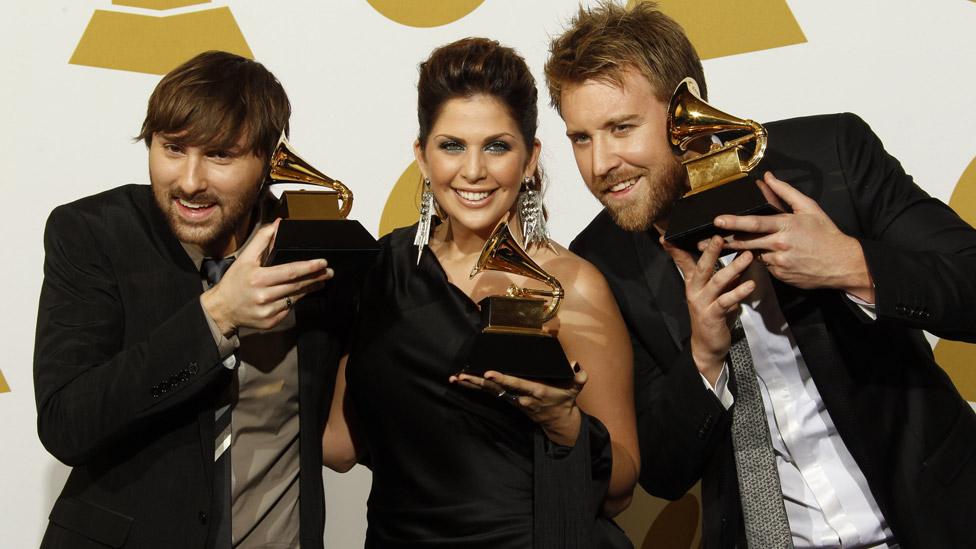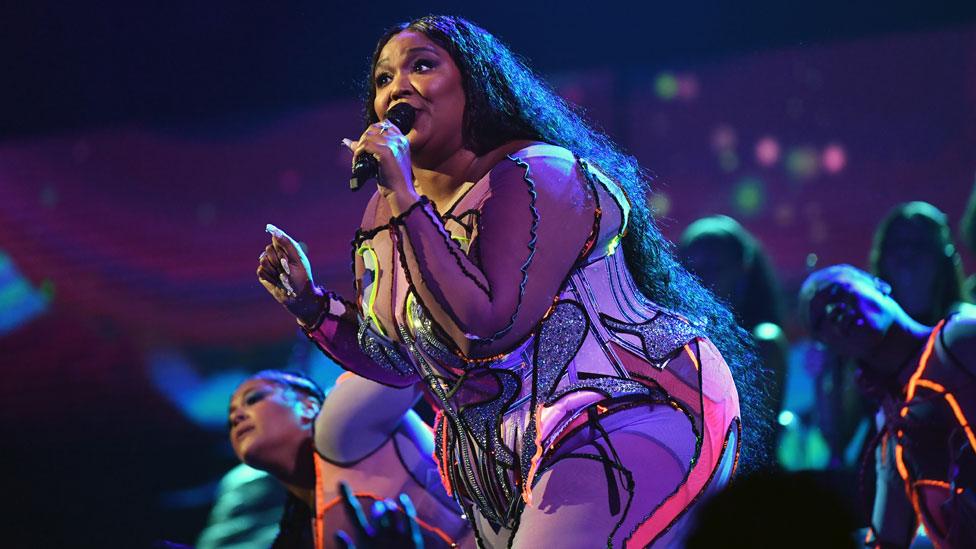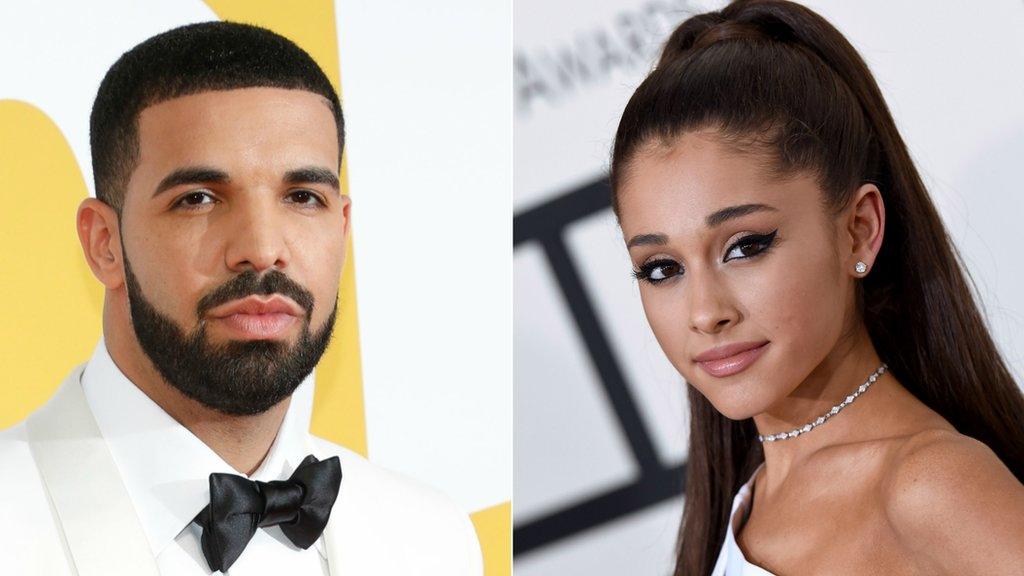Lady Antebellum: US band change name to Lady A over slave-era links
- Published

Lady Antebellum - now Lady A - with the three Grammys they won in 2010
Chart-topping US pop group Lady Antebellum have changed their name to Lady A because Antebellum has connotations with the slavery era.
The Nashville trio have won five Grammys and had seven US top 10 albums, including three number ones.
The word antebellum is used to refer to the period and architecture in the US South before the Civil War.
They say they took the name from the architectural style, but are "deeply sorry for the hurt this has caused".
In a statement on Twitter, external, they said their eyes had been opened to "the injustices, inequality and biases black women and men have always faced" and "blindspots we didn't even know existed".
Allow X content?
This article contains content provided by X. We ask for your permission before anything is loaded, as they may be using cookies and other technologies. You may want to read X’s cookie policy, external and privacy policy, external before accepting. To view this content choose ‘accept and continue’.

They originally took their name from the antebellum style of home after taking their first band photos in front of one such house almost 14 years ago, they said.
"As musicians, it reminded us of all the music born in the South that influenced us," they wrote.
Does country music recognise its roots?
"But we are regretful and embarrassed to say that we did not take into account the associations that weigh down this word referring to the period of history before the Civil War, which includes slavery.
"We are deeply sorry for the hurt this has caused and for anyone who has felt unsafe, unseen or unvalued. Causing pain was never our hearts' intention, but it doesn't change the fact that indeed, it did just that."
The group are best known for their hit Need You Now, which reached number two in the US, and the top 20 in the UK, in 2010.

Bjork's record label has also changed its name
They said they made the decision after "personal reflection, band discussion, prayer and many honest conversations with some of our closest black friends and colleagues".
They added: "We can make no excuse for our lateness to this realisation. What we can do is acknowledge it, turn from it and take action."
Their move comes after British record label One Little Indian, which has released music by Bjork, Sigur Ros and Paul McCartney's side-project The Fireman, changed its name to One Little Independent.
Founder Derek Birkett said he'd made the decision after a fan explained why the name - which uses an outdated term for the indigenous people of the Americas - was "offensive".
'Appalled'
"The last few weeks have been a monumental learning curve," he wrote in a statement.
"Following the receipt of an eye-opening letter from a Crass fan that detailed precisely why the logo and label name are offensive, as well as the violent history of the terminology, I felt equally appalled and grateful to them for making me understand what must be changed."
He went on to explain that the label had been founded in the late 1970s, when his friends were inspired by the "philosophies of the Indigenous People of the Americas".
"I was naive enough at the time of founding my label to think that the name and logo was reflective of my respect and appreciation of the culture," he said. "I recognise now that both contribute to racism and should have been addressed a long, long time ago."
The name changes come as the music industry seeks to address its complicated history with race, in the wake of George Floyd's death and Black Lives Matter protests around the world.
The term "urban music" has been scrapped by Republic Records, which is home to Drake and Ariana Grande, while the Grammys have announced they will stop using "urban" to describe music of black origin in their awards categories.

Follow us on Facebook, external, or on Twitter @BBCNewsEnts, external. If you have a story suggestion email entertainment.news@bbc.co.uk, external.
- Published10 June 2020

- Published8 June 2020

- Published9 June 2020
